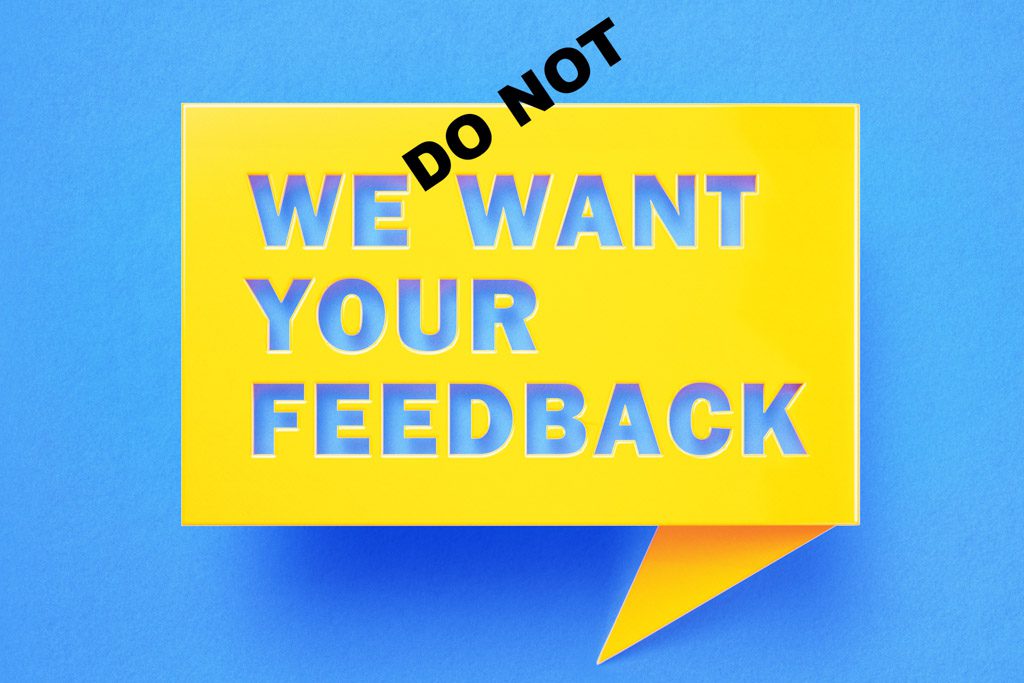Your business is built around your clients.
But it’s not a democracy.
Your job, as coach, is to understand what your clients need and give it to them. They don’t really know what they need, which is why they elected to pay you. They vote with their wallets. You don’t need to keep asking them what they want next.
Client surveys, “town hall” meetings and even advisory boards are a horrible way to run a small business.
Encouraging Complainers to Vent
In the darkest days of my gym, Catalyst, I was tempted to turn the gym into a co-operative. Not because I thought my clients had better ideas than I did but simply because I wanted someone else to share the responsibility for the gym’s success (or, more likely, to share the blame when the gym failed).
But you can’t make decisions by committee and hope to get anywhere. If you chase customer feedback, ideas and complaints, you’ll be directionless.
Here’s an example:
A few years ago, gym owners liked to use surveys. They would send out a survey to everybody in the gym, and all members essentially got “an equal vote” when responding.
And who would respond? Complainers and helpers: people with axes to grind and people who really wanted to help.
As I explained in the first post in this series, the “helpers” exaggerate their feedback so they can feel important. And the complainers exaggerate their feedback just to make things suit their own needs to a greater degree.
Even though most of the people in the gym have no complaints, the squeakiest wheels tend to get the grease. And the gym owner can be led astray. In surveys, complainers say things like this:
- “I want you to change this.”
- “I don’t like this coach.”
- “We need more open-gym hours.”
- “We need 20 more classes a week.”
- “If you dropped your rates a little, you’d get a lot more clients!”
So the gym owner makes changes in response to the complainers. Two months later, she’ll call Two-Brain and say, “Well, I’m running these extra classes. Nobody’s showing up. I’m spending more time. I’m not making more money. This was a mistake.”
Meanwhile, most of their clients had no problem with the previous schedule—or the coaching or the rates.
Even more often, gym owners will recognize the survey feedback as bad advice. And they won’t make the changes. But the clients who gave their feedback expect some kind of action, and when none is taken, they think, “Why ask for my feedback and then not take it? Obviously this coach doesn’t take me seriously!” Then they amplify their demands by threatening to quit or just complaining to other clients.
Don’t Use Surveys!
Surveys are a no-win strategy.
Your best clients won’t give you anything actionable in a survey.
Your worst clients will complain and expect action.
Worst, surveys make it easy to confuse the squeaky wheels with the people who are really driving the train.
Instead of surveys, identify your best clients (see the first post in this series). Take them for coffee. Listen carefully. They won’t give you good advice on how to run your business (that’s a mentor’s job), but they’ll tell you how to serve them more—and how to find others like them, too.

